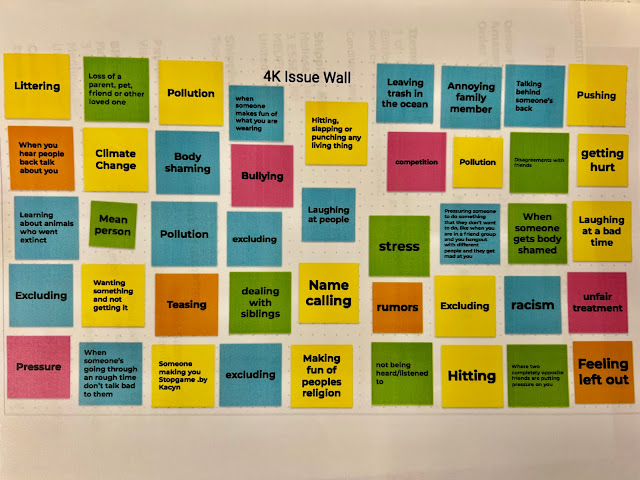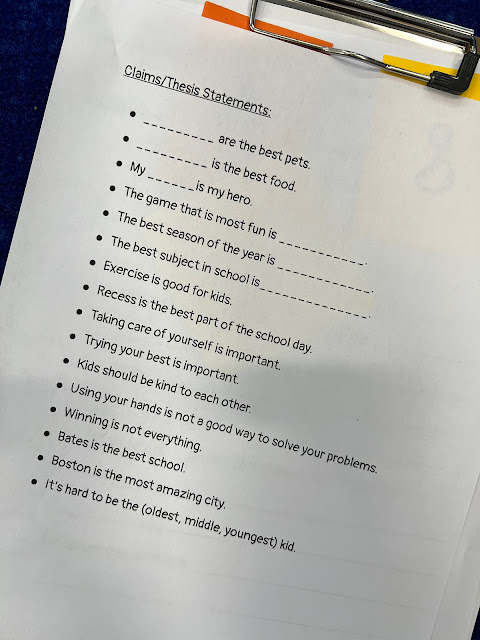Teeny Teaching Tale
Laura and I are obsessed with oral rehearsal.
For years we taught first grade and kindergarten and the writing workshop was our thing💗. Our kids wrote starting on the first day of kindergarten! We certainly did not have the curriculum demands that we have now. Kids would write narratives the whole year. Can you imagine? Common Core? What was that?
The one thing we wished we did all those years ago was to let kids orally rehearse their stories or pieces. Back then we were eager to get kids to put pencil to paper and write, write, write. Now we realize the benefits of having students orally rehearse their writing before they put pen to paper.
In K-2 units of study, students learn to Tap and Tell each page of a booklet before they write. This important lesson can easily be overlooked. Not only should students Tap and Tell each page, but they should also do it all the time (alone or with a partner). Tapping and Telling should be a routine like writing your name. Next comes sketching, sketching across the pages will help you remember what you planned. When kids don’t practice telling their story across pages what happens is that they start to write and when they get to page two they get stuck. “I don’t know what to write next?” “Can you help me?” Students who don’t rehearse don’t have a plan.
Laura is now teaching fourth grade and many upper-grade classrooms think oral rehearsal is something you do in the primary grades… of course, we think that’s dead wrong. Upper-grade teachers often use Venn diagrams or Thinking Maps to fill in to replace talk. As a primary teacher, I was definitely guilty of having students use Thinking Maps instead of Touch and Tell!
We are certainly not against a tool that could help students with their thinking but the question is do all students need that tool? No. And when we give tools to students those tools should serve as scaffolds. We recently attended a PD session on how when we over scaffold student learning kids don’t experience productive struggle. Kids need to experience productive struggle to grow their brains.
Tiny Tips
So, Laura decided that we were going to do some of this oral rehearsal with her fourth-grader who were beginning a unit on personal essays. We definitely hit bumps in the road but found the experience worthwhile.
Students could select a tool to help them orally rehearse their essays. These sheets did not have to be filled in!
Laura referred to this oral rehearsal session like it was “speed dating” (giggles all around).
The kids would do a round with partner A and then move to partner B.
Partner A would give the writer feedback and then the writer would retell again and make it better (with the feedback from partner A).
Before this lesson, her class brainstormed a list of topics on a Jamboard. The Jamboard is quite impressive with thoughtful topics.
Laura gave excellent modeling and clear directions and students began to orally rehearse. When listening to students practice we realized lots of students were struggling to come up with reasons that supported their claim. Some of their claims may have been too ambitious or students needed more time to think of reasons. Productive struggle?! If I can’t talk about this topic maybe I need to rethink the topic?
We decided to do a reset. What was our purpose? We wanted kids to practice the structure of essay writing (because it’s formulaic). Maybe we needed to scaffold this session so that students felt successful with giving feedback and orally rehearsing. Laura provided a list of potential topics that were slightly easier than some of the weighty social issues students first attempted. Students picked one and were given some thinking time before beginning the rehearsal.
Day 2 was much more successful!
The kid did an excellent job talking, listening, and giving feedback to partners. After orally rehearsing with two partners many of them wanted to write! Moving forward Laura plans to think about all the different ways she can push oral rehearsal into the writing process. This session focused on the whole class practicing oral rehearsal (prior to writing) but moving forward Laura plans to offer times at the end of the workshop and during revision. We both see the value of spending this time with upper-grade students, too.






